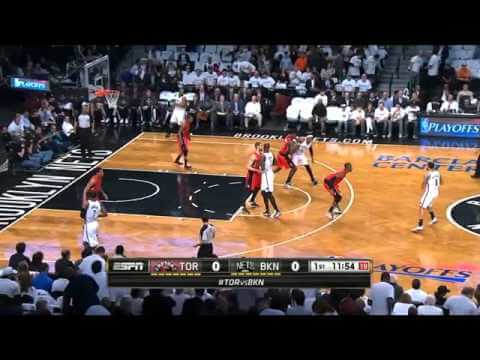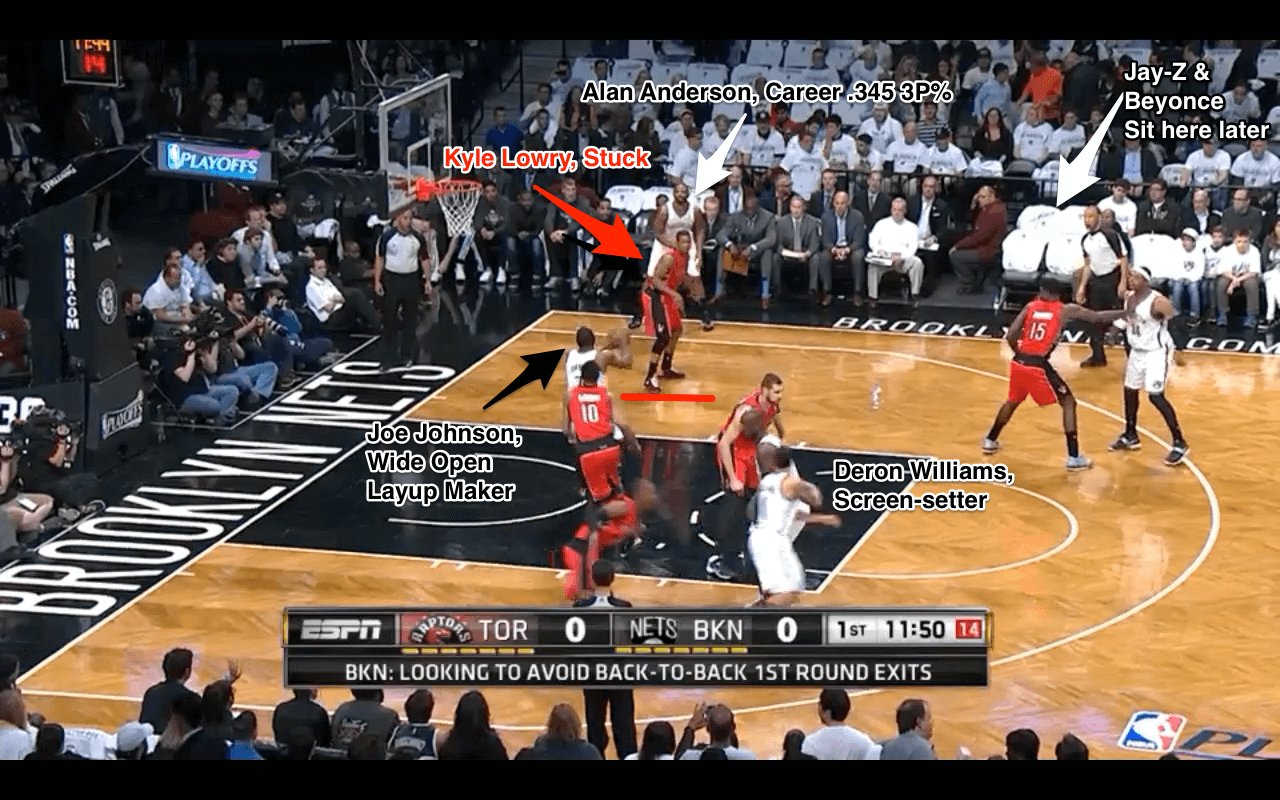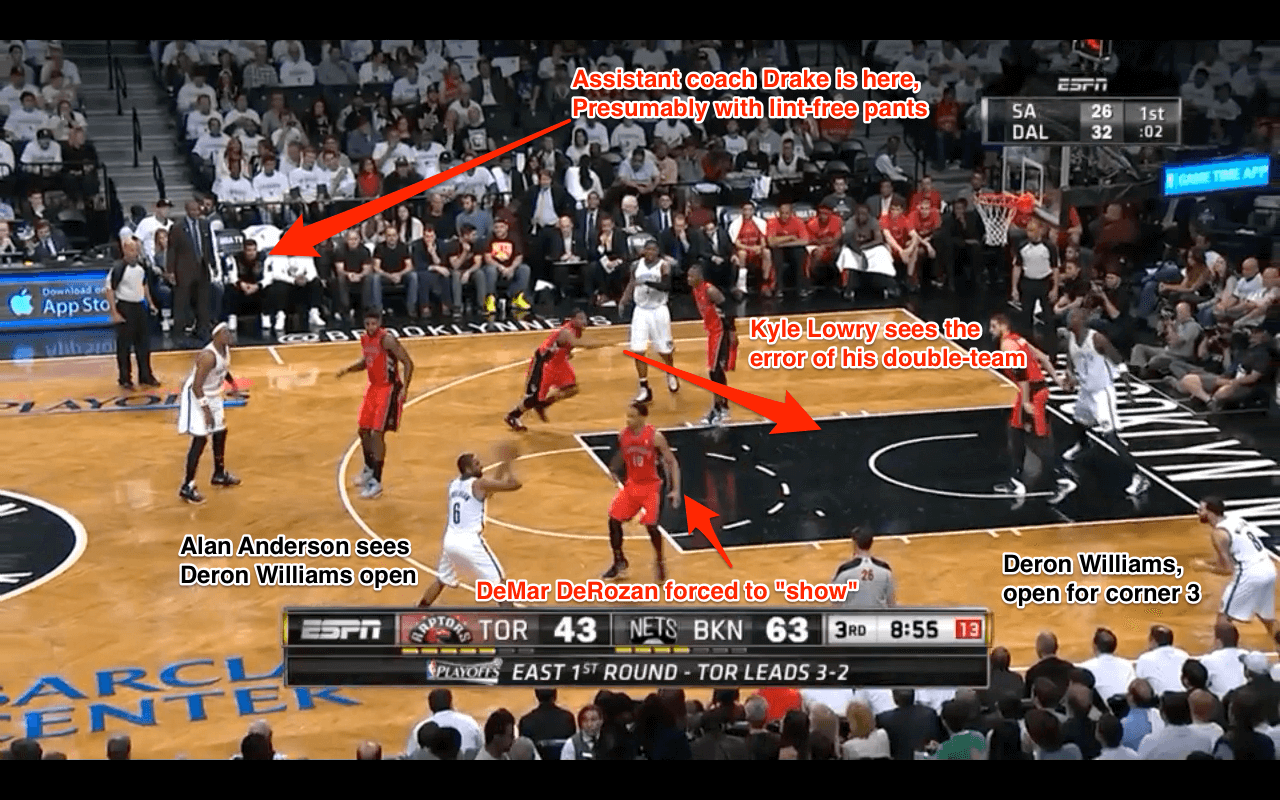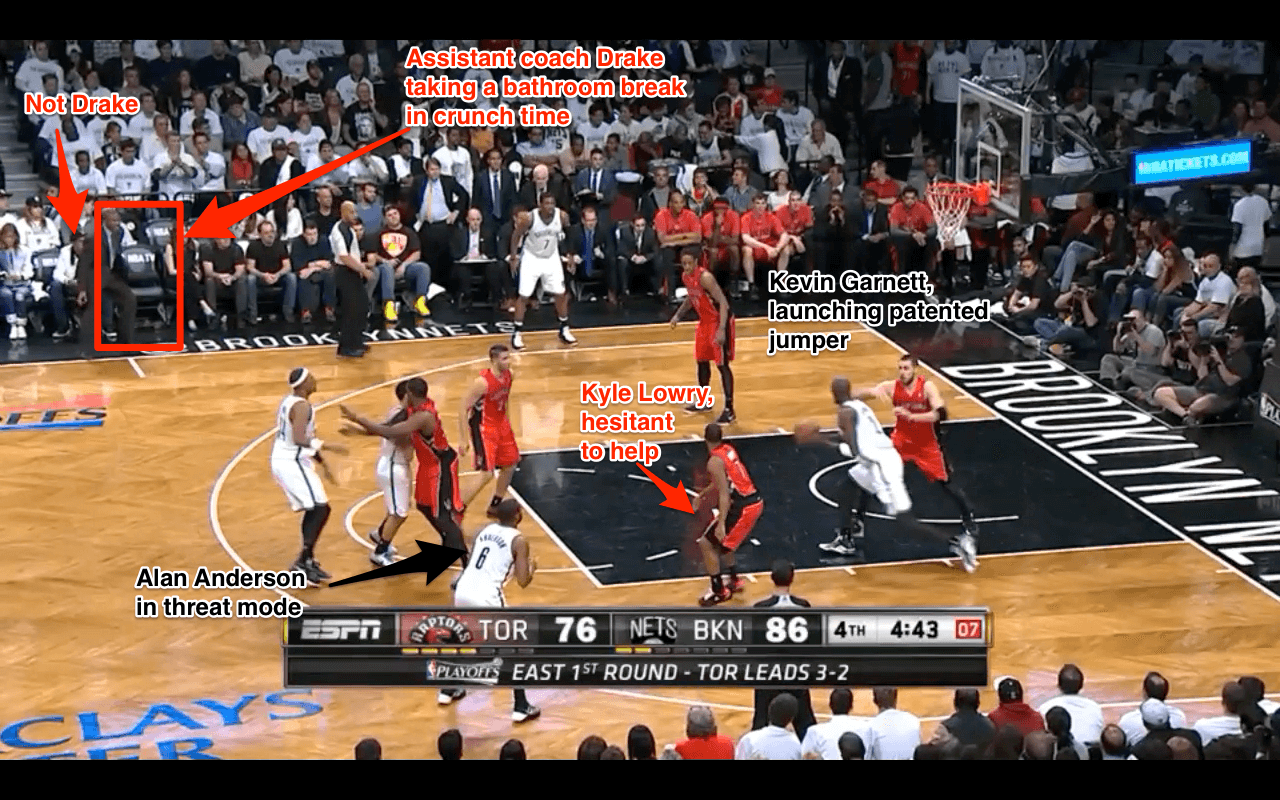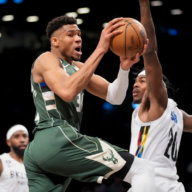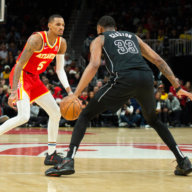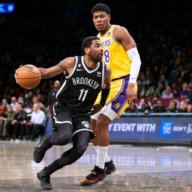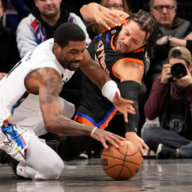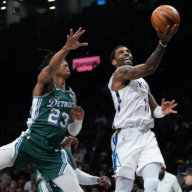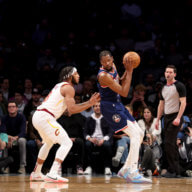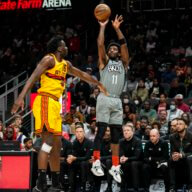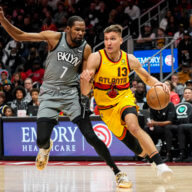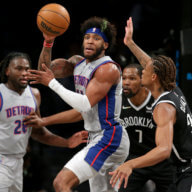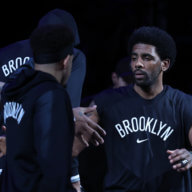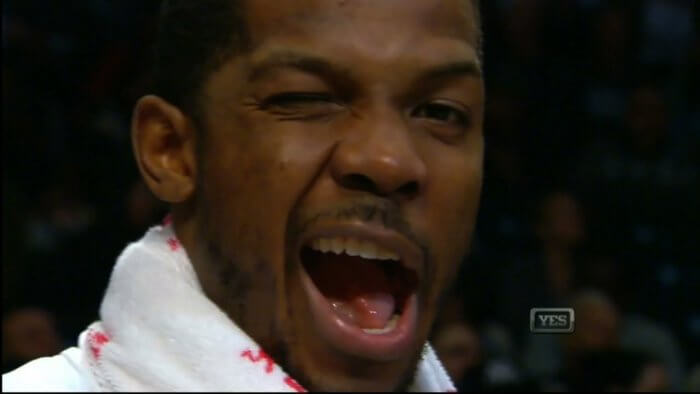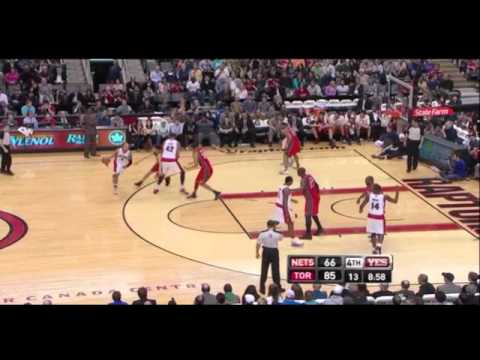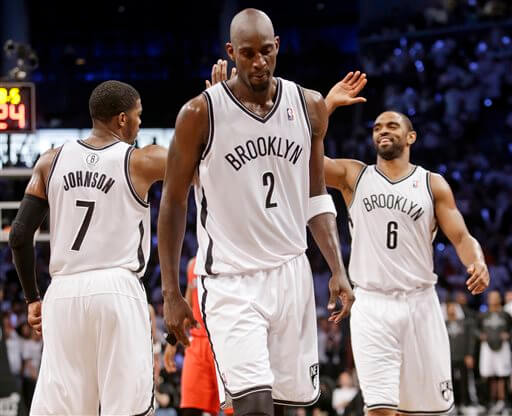
The Nets won the first emphatic, wire-to-wire victory in this best-of-seven first-round series, blowing out the Toronto Raptors 97-83 on their home court to force a Game 7.
Okay, so 14 points isn’t a “blowout,” but by the standard this series (and really, this entire NBA playoffs) has set, anything above three possessions is blowout city. It came with a number of factors: Deron Williams had a hell of an offensive game, Andray Blatche had a surprising defensive one, and the Nets limited a pestering Kyle Lowry to 4-16 shooting in 38 minutes.
But one of the bigger changes was a subtle substitution in their starting lineup: Friday morning, Jason Kidd told Alan Anderson during the team shootaround that he’d get the nod over Shaun Livingston to help the team’s floor spacing. “It was just a feeling,” Kidd said of the decision, a risky one with the team facing elimination.
The Nets have been a +8 in 55 minutes with their regular starting lineup in this series, but when they’ve switched out Livingston for Anderson, they’ve been a +21 in 26 minutes. We’re talking small sample size here, so I don’t want to be too predictive, just reflective: Anderson brought Livingston’s normally-plus defense, hounding DeMar DeRozan early, and improved Brooklyn’s spacing.
“I made a couple shots in the last game, and they’re not going to leave me open too much,” Anderson said, drawing more attention than usual both in-game and post-game.
Even though Anderson didn’t make a three-pointer last night — he missed both of his attempts — his presence alone changed how Toronto could defend, limiting their options with Anderson’s shooting threat lurking around the perimeter.
Anderson’s impact was immediate. We’re talking first-play-of-the-game immediate.
Watch after the tipoff: Deron Williams runs down to set an off-ball screen for Joe Johnson in the left corner, with Kyle Lowry guarding Alan Anderson in the opposite corner. If Livingston were in Anderson’s position, Lowry could help down on the screen, stepping into the paint and offering a double-team to deter the layup.
But since the Raptors have to respect Anderson’s shooting, Lowry stands idly in the corner, not even making a move towards Johnson, and Johnson gets a wide-open layup. Look at Lowry’s positioning when Johnson makes the catch. He’s the next man to help, and he’s stuck.
Here’s another example. On this third-quarter possession, the Raptors tried to bring the double-team on Johnson off Anderson, like they might with Livingston in the game. But the Nets recognized the scheme and took advantage:
Here, Lowry leaves Anderson on the opposite wing, and Johnson recognizes the double-team and sets the ball in motion to exploit the mismatch. Johnson whips a pass to Pierce, who swings the ball to the now-open Anderson on the wing.
DeMar DeRozan, who’s guarding a hobbled Deron Williams in the corner, has to step up on Anderson to prevent the shot, and Anderson fires the pass to Williams for the corner 3 — the most efficient shot in the game.
With Livingston in Anderson’s spot, DeRozan doesn’t have to run off Williams in the corner so quickly, but because Anderson is a threat from that distance, he’s got to make that decision.
One quick other one: late in the fourth quarter last night, Anderson dropped the ball off into Garnett in the post, who the Raptors single-covered with Jonas Valanciunas. With Livingston in the game, the option to double-team in the post presents itself, and Garnett can’t go into his turnaround jumper cleanly.
Basketball is a game of options in any given possession, and though the Raptors might not have elected to double Garnett here anyway, he doesn’t have to worry about the possibility and can get a high-percentage look. You can even see Lowry’s indecision: he wants to double, but hesitates because he knows an open 3 for Anderson is as bad as a 2 for Garnett.
I still believe in Livingston, as his combination of ballhandling, basketball IQ, and length allows him to create havoc on both ends. He’s still one of the deadliest short-range shooters in the game, and he ranks best in the league at points per possession out of the post because of his size advantage over other guards.
But he’s had a rough series with shooting fouls and costly turnovers, whether they be cross-court passes that go awry or mis-timed steps and dribbles. With him in the game, the Raptors can double-team Johnson, pack the paint with defenders, and leave Livingston alone on the perimeter. They can’t do that with Anderson.
Here’s one example from Game 3 of the Raptors doubling Joe Johnson off Livingston without hesitation, forcing the ball out of his hands and into a tough attempt for Paul Pierce over Patrick Patterson.
As soon as Johnson gets in the lane, Lowry drops, ignoring Livingston for the rest of the play. He can’t do that with Anderson in the same spot.
The Nets head into Game 7 on the road facing an unprecedented mountain: the team’s never won a Game 7 in their franchise’s NBA history, and the holdovers from last season still have the first-round loss from last season stuck in their heads. The team hasn’t made it out of the first round of the playoffs since 2007, in a series where current coach Kidd averaged a triple-double against the same Raptors. The Nets will likely start Anderson again, and if his impact matches Game 6, the Nets might fly straight to Miami.

